Andrus Kivirhk
The Man Who Spoke Snakish
 he forest has been left empty. These days you hardly meet anyone, apart from the dung beetles, of course. Nothing seems to affect them; they go on humming and buzzing, just as before. They fly to suck blood or bite, or perhaps climb absurdly on your leg if you get in their way, and scurry hither and thither until you wipe them off or flick them away. Their world is just as it was but it wont stay that way. The bell will toll even for the dung beetles! Of course I wont see that day; no one will. But one day that hour will strike. I know that quite certainly.
he forest has been left empty. These days you hardly meet anyone, apart from the dung beetles, of course. Nothing seems to affect them; they go on humming and buzzing, just as before. They fly to suck blood or bite, or perhaps climb absurdly on your leg if you get in their way, and scurry hither and thither until you wipe them off or flick them away. Their world is just as it was but it wont stay that way. The bell will toll even for the dung beetles! Of course I wont see that day; no one will. But one day that hour will strike. I know that quite certainly.
I dont go out much anymore, only about once a week do I go above ground. I go to the well; I fetch water. I wash myself and my companion; I scrub his hot body. It uses a lot of water I have to go to the well several times a day but it rarely happens that I meet anyone on the path that I might chat to. Not often a human, anyway; a couple of times Ive met a buck or a boar. Theyve become timid. Theyre even afraid of my scent. If I hiss, they stiffen on the spot, glare at me stupidly, but they never come close. They stare as if at a miracle of nature a human who knows the language of Snakish. This drives them into even greater terror. They would like to butt me into the bushes, give me a wound in the legs, and run as far as possible from this strange freak but they darent. The words forbid it. I hiss at them again, louder this time. With a gruff command I force them to come to me. The beasts low despondently, dragging themselves reluctantly in my direction. I could take pity on them and let them go, but what for? Inside me there is a strange hatred toward the newcomers who dont know the old ways and just gambol through the forest, as if it had been created at the dawn of time just for them to loll about in. So I hiss a third time, and this time my words are as strong as a quagmire from which its impossible to escape. The crazed animals rush toward me as if shot from a bow, while all their innards burst with unbearable tension. They are torn apart, like the tearing of trousers that are too tight, and their intestines spill out onto the grass. Its disgusting to see, and I get no pleasure from it, but nevertheless I can never let my powers go untested. Its not my fault that these beasts have forgotten the words of snakes that my ancestors used to teach them.
One time it went differently, however. I was just coming back from the well, a heavy skinful of water on my shoulder, when all at once I saw a big deer on my path. I instantly hissed some simple words, already feeling scorn for the deers plight. But the deer didnt flinch when it heard long-forgotten words of command issuing unexpectedly from the mouth of a man-child. In fact he lowered his head and came up to me, got down on his knees and submissively offered his neck, just as in the old days, when we used to get our food this way by calling the deer to be killed. How often as a little boy I had seen my mother getting winter provisions for our family in this way! She would select the most suitable cow from the big herd of deer, call her over, and then lightly slit the throat of the submissive animal, hissing snake-words at her. A fully grown deer cow would last us a whole winter. How ridiculous the villagers foolish hunting seemed compared to our simple way of getting food. They would spend hours chasing one deer, firing many arrows haphazardly into the bushes, and then afterward, often as not, going home empty-handed and disappointed. All you needed to get a deer to submit to you were a few words! Words that I had just used. A big strong deer was lying at my feet, just waiting. I could have killed it with a single movement of my hand. But I didnt.
Instead I took the waterskin off my shoulder and offered the deer a drink. He lapped it meekly. He was an old bull, quite old. He must have been; otherwise he would not have remembered how a deer should behave when called by a human. He would have struggled and grappled, tried to get to the treetops, perhaps using his teeth, even as the ancient force of the words drew him to me; he would have come to me like a fool, whereas now he came to me like a king. No matter that he was coming to be slaughtered. Even that is a skill to be learned. Is there anything humiliating about submitting yourself to age-old laws and customs? Not in my opinion. We never killed a single deer for fun. What fun is there to be had in that? We needed to eat, there was a word that would get food for you, and the deer knew that word and obeyed it. What is humiliating is to forget everything, like those young boars and bucks, who take fright when they hear the words. Or the villagers, who would go out in their dozens just to catch one deer. It is stupidity that is humiliating, not wisdom.
I gave the deer a drink and stroked his head and he rubbed his muzzle against my jacket. So the old world had not completely vanished after all. As long as Im alive, as long as that old deer is alive, Snakish will still be known and remembered around these parts.
I let the deer go. May he live long. And remember.

What I was actually going to tell a story about was the funeral of Manivald. I was six years old at the time. I had never seen Manivald with my own eyes, because he didnt live in the forest, but by the sea. To this day I dont actually know why Uncle Vootele took me with him to the funeral. There were no other children there. My friend Prtel wasnt there, nor was Hiie. But Hiie had definitely been born by then; she was only a year younger than me. Why didnt Tambet and Mall take her with them? It was after all for them just a pleasant occasion not in the sense that they had anything against Manivald or that his death would bring them pleasure. No, far from it. Tambet respected Manivald very much; I clearly remember what he said at the funeral pyre: Men like that are not born anymore. He was right; they werent. In fact no men at all were being born anymore, at least not in our district. I was the last; a couple of months before me there was Prtel; a year later Tambet and Mall had Hiie. She wasnt a man; she was a girl. After Hiie, only weasels and hares were born in the forest.
Of course Tambet didnt know that at the time, nor did he want to. He always believed that the old times would come again, and so on. He couldnt believe otherwise; thats the kind of man he was, strongly loyal to all the ways and customs. Every week he would go to the sacred grove and tie colored strips of cloth to a linden tree, believing he was making a sacrifice to the nature spirits. lgas, the Sage of the Grove, was his best friend. Actually, the word friend isnt right; Tambet wouldnt have called him his friend. That would have seemed the height of boorishness to the sage. He was great and holy, and had to be respected, not befriended.
Naturally lgas was also at Manivalds funeral. How could he not be? He was the one who had to light the funeral pyre and accompany the soul of the departed to the spirit world. He did this at annoying length: he sang, he beat a drum, he burned some mushrooms and straw. That was how the dead had been cremated from age to age; that was what had to be done. That is why I say that that funeral was very much to Tambets taste. He liked all sorts of rituals. As long as things were done the way his forefathers had done them, Tambet was happy.
Afterward, I felt terribly sad; I remember it clearly. I didnt know Manivald at all, so I couldnt have been grieving; all the same, I was just gazing around me. At first it was exciting to see the dead mans wrinkled face with its long beard and quite gruesome too, because Id never seen a dead person before. The sages incantations and conjurations went on so long that in the end it was no longer either exciting or terrifying. I would just as soon have run away to the seashore, since Id never been there before. I was a child of the forest. But Uncle Vootele kept me there, whispering in my ear that soon theyd be lighting the pyre. At first it was impressive, and I did want to see the fire, especially how it burns a man up. What would come out of him? What kind of bones did he have? I stayed on the spot, but lgas the Sage carried on with his never-ending observances and in the end I was half dead with boredom. It wouldnt even have interested me if Uncle Vootele had promised to flay the corpse before burning; I just wanted to go home. I yawned audibly, and Tambet glared at me with his goggle-eyes and growled, Quiet, boy, youre at a funeral! Listen to the sage!

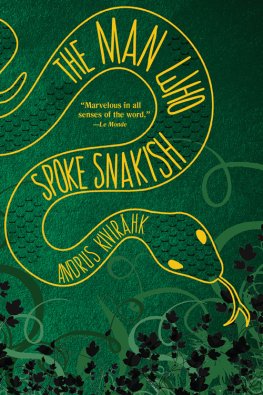
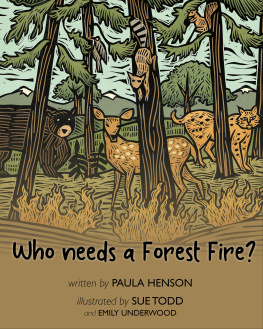
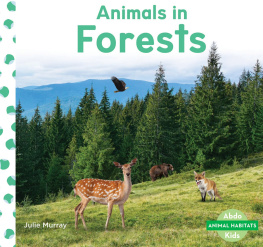


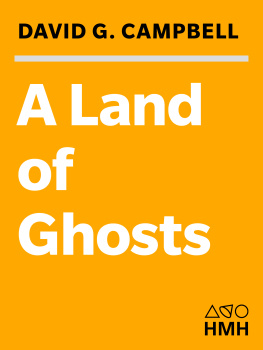
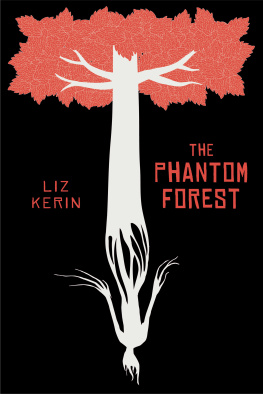
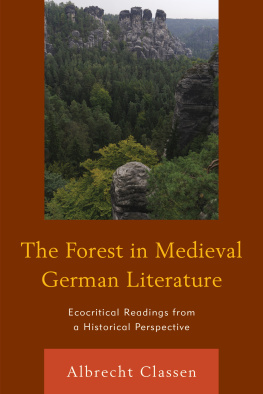
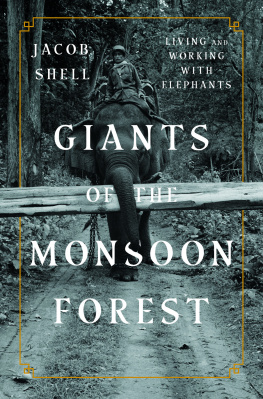
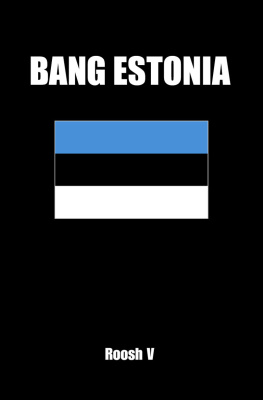
 he forest has been left empty. These days you hardly meet anyone, apart from the dung beetles, of course. Nothing seems to affect them; they go on humming and buzzing, just as before. They fly to suck blood or bite, or perhaps climb absurdly on your leg if you get in their way, and scurry hither and thither until you wipe them off or flick them away. Their world is just as it was but it wont stay that way. The bell will toll even for the dung beetles! Of course I wont see that day; no one will. But one day that hour will strike. I know that quite certainly.
he forest has been left empty. These days you hardly meet anyone, apart from the dung beetles, of course. Nothing seems to affect them; they go on humming and buzzing, just as before. They fly to suck blood or bite, or perhaps climb absurdly on your leg if you get in their way, and scurry hither and thither until you wipe them off or flick them away. Their world is just as it was but it wont stay that way. The bell will toll even for the dung beetles! Of course I wont see that day; no one will. But one day that hour will strike. I know that quite certainly.